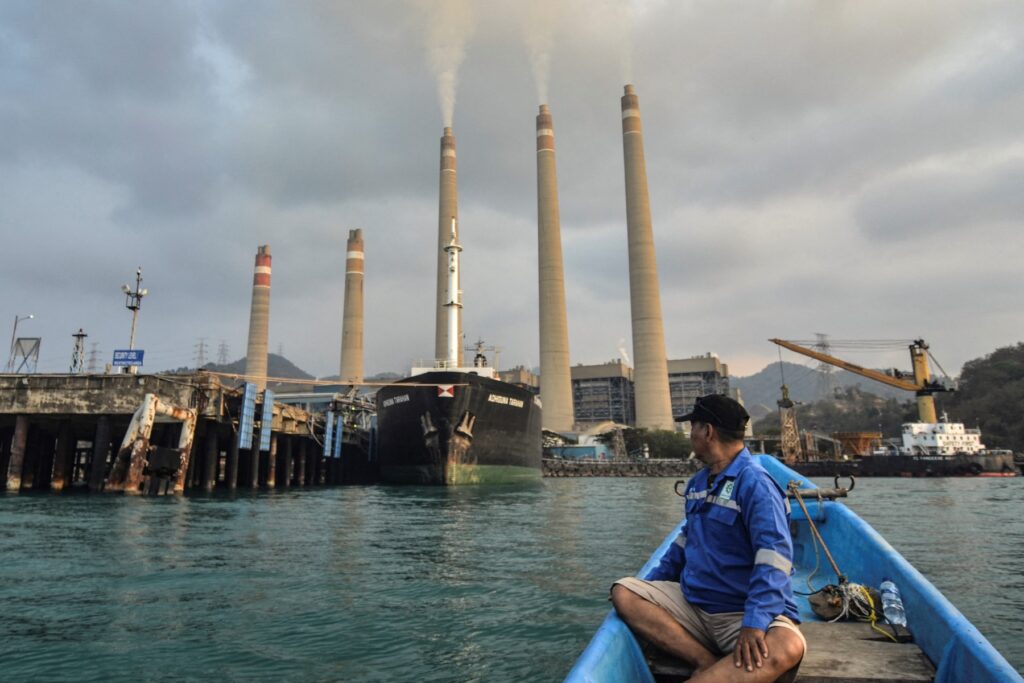June 30, 2025
JAKARTA – Indonesia’s coal industry faces mounting pressure as key export markets China and India shift to coal with higher calorific value (HCV) and ramp up production to meet domestic demand.
Faced with shrinking export opportunities, Indonesian coal miners are scrambling to realign their strategy by diverting sales to the domestic market and tightening costs. They are also urging the government to roll back regulations that add financial strain in an already challenging market.
In the first five months of 2025, Indonesia’s thermal coal exports to China and India slumped 12.3 percent and 14.3 percent, respectively, outpacing the overall drop in the two countries’ coal imports of 10 percent in China and just over 5 percent in India.
Asia’s two largest economies are increasingly turning to alternative suppliers, particularly those that offer higher-grade coal. In the January-May period this year, Mongolia’s coal exports to China surged 44.8 percent while South Africa’s coal shipments to India jumped 26.1 percent.
“[HCV] coal is more expensive but yields more energy for every dollar spent,” Vasudev Pamnani, director at Indian coal trader i-Energy Natural Resources, told Reuters during an interview.
“One million tons of [HCV] coal can replace up to 1.5 million tonnes of Indonesian supply,” he said.
Analysts noted that Indian coal traders had increased their purchases from Kazakhstan, Colombia and Mozambique, favoring their higher-grade offerings.
At the same time, Indonesian exports of medium calorific value (MCV) and lower calorific value (LCV) coal to China are being squeezed by discounted Russian commodities of similar grades and price-competitive Mongolian coal.
The pivot comes as China and India ramp up domestic coal production, with the former hitting 4.9 billion tonnes and the latter surpassing the 1-billion-tonne mark, reducing their reliance on foreign supply.
Meanwhile, global trade tensions exacerbated by the United States’ tariff policies have weighed on broader regional economic growth, further softening demand for the energy commodity.
“The decline in coal demand is not just regional, it is global,” Ardhi Ishak Kosen, head of industrial relations at the Association of Indonesian Mining Professionals (Perhapi), told The Jakarta Post on Thursday.
“Producers are increasingly turning to domestic markets, but the growth of local demand is limited,” he said.
According to Ardhi, national coal output is projected to decline from 836 million tonnes in 2024 to below 800 million tonnes this year. Overproduction remains likely however, as domestic demand is expected to reach only between 250 million and 260 million tonnes compared to 233 million last year.
“Mining equipment is underutilized, some machines stand idle, while others run on reduced hours or not at all,” he continued, referring to the types of operational inefficiencies that could ensue.
Shift to smelting
Gita Mahyarani, acting executive director of the Indonesian Coal Mining Association (APBI), said local miners were increasingly turning their attention to the domestic market to cushion the blow from falling exports. They were particularly tapping into the rapidly expanding mineral smelting industry, she said, which is expected to absorb 31.2 percent of this year’s domestic market obligation (DMO).
Electricity remains the dominant domestic consumer sector however, accounting for 58 percent of the 2025 DMO.
Domestic coal deliveries now make up 48.6 percent of the national supply, the highest share in over a decade, according to government data reviewed by Reuters.
With global prices under pressure, smelters have emerged as a more lucrative market, offering better profit margins than coal sales to the local power utility sector, which is heavily regulated.
Gita noted that producers were prioritizing the fulfillment of existing contracts.
They were especially focusing on countries still reliant on MCV coal “in the Southeast Asian region, where the use of coal-fired power plants remains high [and] continue to show solid demand for [MCV] coal, and their proximity offers a logistical advantage”, she told the Post on Thursday.
She added that cost efficiency also had become a top priority as mining firms looked to maintain competitiveness.
Regulatory burdens
Ardhi from Perhapi suggested that coal producers should improve operational efficiency and reduce capital expenditures to remain competitive.
He also called on the government to revoke policies that increased the financial burden on producers, such as the mandatory use of B40 blended biodiesel and the requirement to keep a portion of their export foreign exchange earnings (DHE) in the country.
According to a Bloomberg report on May 27, some buyers have pointed to the country’s coal reference price (HBA), which remains higher than prevailing global market rates, as a contributor to the decline in Indonesian exports. In force since March 1, the use of HBA as the basis for export shipments was originally intended to prevent sales of Indonesian coal below domestic benchmark prices.
Surya Herjuna, director of coal business development at the Energy and Mineral Resources Ministry, has dismissed the idea, however.
He noted that domestic sales had also slowed, falling to 12 million tonnes in the first quarter this year from 16 million tonnes over the same period last year, attributing the decline to geopolitical tensions.
The ministry set the HBA at US$98.61 per tonne for the second half of June, down 2.33 percent from $100.97 in the first half of the month, marking a 23 percent decline from the pricing rule’s implementation in March.

